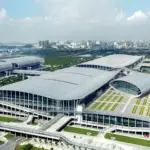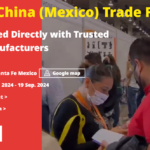The term “overcapacity” is used everywhere, but especially in Europe, to show the extent to which China is overproducing. But capacity is not production, and overcapacity only hurts China’s national economy.
For China’s trading partners, it is the dumping of products below cost that hurts them.
In an industrial economy, overcapacity consists of building factories larger than a company needs in the hope that supply will create its own demand.

In a capitalist economy, the individual firm that invests to build a factory far in excess of market demand will incur losses: fixed capital losses from construction, then operating maintenance losses in land taxes electricity and depreciation of buildings and machines, and then further losses in unrealized profits because the factory is operating below capacity utilization optimization levels.
China has excess capacity in high-speed train manufacturing, but factories simply sit idle most of the year. Overcapacity in China’s electric vehicle industry is a capital loss problem for China. But if China runs those EV factories at full capacity, overproduces EVs and dumps them on international markets at prices that destroy European, U.S. and Japanese automakers, then it is a dumping problem.
It is likely to be positive for countries without domestic industry, for which the supply of cheap Chinese electric vehicles creates its own demand.






